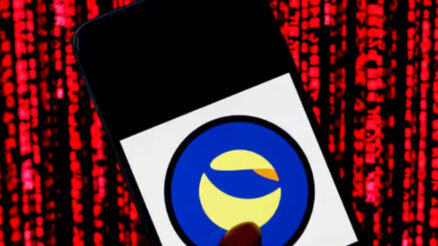In August 2023, the picturesque landscapes of Maui, Hawaii, were marred by a catastrophic event—the Maui wildfires. These devastating fires left behind a trail of destruction and health concerns for those who endured the disaster.
As noted by the CDC, ash from wildfires can irritate the nose, skin, eyes, and other body parts. Individuals who are most at risk include those with COPD, asthma, or cardiac conditions and pregnant women. The agency states that respirators should be used by those in affected areas to minimize the ill effects.
As legal battles unfold against Hawaiian Electric and other entities involved, they are highlighting the health implications of the Maui wildfires. In this article, we aim to provide insight into how these lawsuits are addressing the complex health impacts of the Maui wildfires.
Health Impact Awareness
Exposure to the thick smoke and hazardous particles released during wildfires poses a significant risk to respiratory health. As noted by Common Dreams, scientists have warned of toxic particle pollution in Maui wildfire smoke in an attempt to spread awareness. These toxins can induce vomiting, dizziness, nausea, rashes, and respiratory difficulties at high concentrations.
Victims and their legal representatives are keenly aware of the physical health risks associated with injuries sustained during the fires. However, they also recognize that the health consequences extend beyond the immediate aftermath. The Maui wildfire lawsuits have brought attention to the immediate and long-term health impacts of the devastating fires.
These lawsuits aim to hold accountable those responsible for the fires, emphasizing that the health impacts go far beyond property damage. Compensation for medical expenses, ongoing healthcare needs, and mental health support are central to addressing these health-related claims.
Accountability for Health Consequences
The lawsuits arising from the Maui wildfires are placing a significant emphasis on holding Hawaiian Electric accountable. Plaintiffs argue that the utility company’s negligence directly contributed to the health risks posed by the wildfires. By failing to shut down power lines despite a warning, Hawaiian Electric is alleged to have aggravated the fire.
The lawsuits assert that the extent of the wildfires and their associated health impacts could have been significantly reduced if proper measures were taken. Victims are actively seeking compensation for property loss, wrongful death, and enduring long-term health impacts from fire exposure.
According to Reuters, Hawaiian Electric’s response has been one of denial. The utility company claims that power lines were deactivated hours before the deadly blaze. The company also expressed disappointment in Maui County’s decision to file a lawsuit.
Legal Strategies for Health Claims
According to TruLaw, the legal strategies employed in the Maui wildfire lawsuits are comprehensive in addressing health-related claims. Attorneys representing victims and survivors are pursuing various avenues to secure compensation for the health impacts resulting from the wildfires.
One key aspect of these strategies is seeking reimbursement for medical expenses incurred due to injuries sustained during the fires. This includes costs associated with emergency medical treatment, hospitalization, surgeries, and ongoing medical care. If you are a victim of this wildfire, it is crucial that you approach a professional Maui wildfire lawyer. Personal injury attorneys who have experience in environmental litigation are usually best for cases like this.
The plaintiffs are advocating for compensation to cover mental health support. Witnessing the destruction, losing loved ones, and enduring the trauma of the wildfires can lead to severe mental health challenges, including PTSD. The lawsuits aim to ensure that survivors have access to therapy and counseling to help address these issues.
Public Health Preparedness
The Maui wildfire lawsuits have underscored the need for improved public health preparedness in the face of natural disasters. Plaintiffs argue that better prevention and evacuation planning could have mitigated some of the health risks associated with the fires.
In the wake of the catastrophic fires, questions have arisen about the adequacy of evacuation plans and emergency response efforts. Legal actions are drawing attention to the importance of warning systems, evacuation routes, and timely communication to safeguard public health during disasters.
By highlighting deficiencies in public health preparedness, these lawsuits aim to ensure that lessons are learned from the Maui wildfires.
Potential Precedent for Future Wildfire Cases
The outcome of the Maui wildfire lawsuits has the potential to set a precedent for future wildfire-related cases. These legal actions highlight the responsibility of utility companies and other entities to safeguard public health during catastrophic wildfires.
Should the plaintiffs succeed in holding Hawaiian Electric accountable, it could lead to greater awareness in addressing health-related risks associated with wildfires. This precedent could impact not only legal proceedings but also influence policies, regulations, and investments in wildfire prevention.
Final Thoughts
The Maui wildfire lawsuits are shining a vital spotlight on the profound health consequences of catastrophic wildfires. These lawsuits emphasize the importance of accountability, public health, and the potential for setting a precedent in addressing risks linked to wildfires.
These cases underscore the critical need for comprehensive wildfire management strategies that prioritize community well-being. This disaster will continue to serve as a reminder of the need to safeguard public health in the face of such tragedies.





